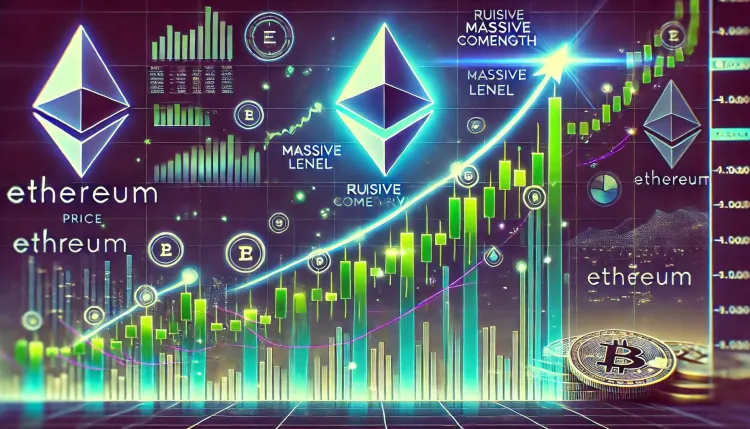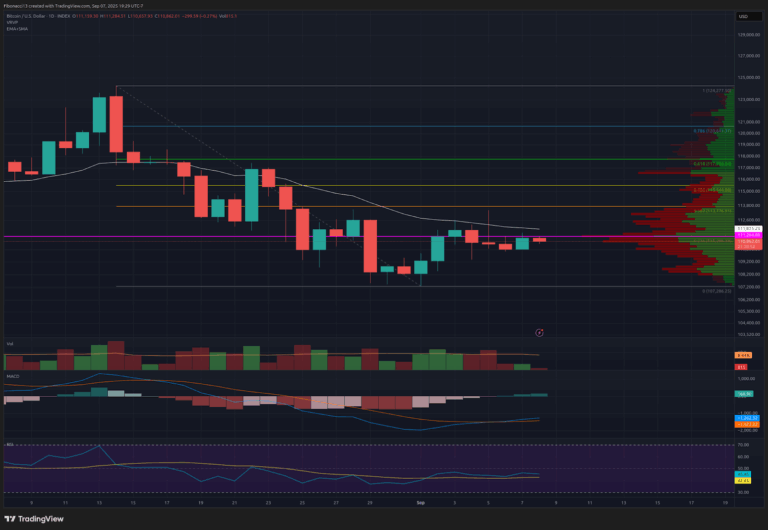Ethereum, the powerhouse of smart contracts and decentralized applications, continues to dominate headlines in 2025. As the second-largest cryptocurrency by market capitalization, ETH remains central to innovations in DeFi, NFTs, and Layer 2 scaling. Ethereum News But this year is especially dynamic: major upgrades are on the horizon, institutional interest is surging, and macro conditions are shifting. In this article, we unpack the most important Ethereum news — from its roadmap and scaling strategy to price forecasts and ecosystem developments. Whether you’re a developer, investor, Ethereum News Key Upgrades: or enthusiast, these insights will help you understand where Ethereum is heading and why it matters.
Ethereum’s Current Landscape: Key Trends
Institutional Adoption and Ether Demand
One of the most significant trends in recent Ethereum news is the growing institutional adoption of ETH. Major firms are increasingly turning to Ethereum, not just for speculative exposure, but as a productive asset. Unlike Bitcoin, Ethereum offers staking, Ethereum News Key Upgrades: smart contract execution, and real-world asset (RWA) tokenization. As highlighted by analysts, companies are building Ethereum treasuries, increasing their exposure to ETH in a long-term, yield-generating way.
This institutional inflow is not only boosting demand for ETH but also strengthening Ethereum’s narrative as a foundational layer for decentralized finance and tokenized economies.
Regulatory Tailwinds: Stablecoin Frameworks
Regulatory developments are playing a pivotal role in Ethereum’s momentum. For instance, the passage of legislation such as the Genius Act (in relevant jurisdictions) has created clearer frameworks for stablecoins, many of which operate on the Ethereum network. This kind of regulatory clarity is driving transaction volume and increasing demand for ETH to pay for fees. Standard Chartered, among others, has raised its year-end ether forecast to $7,500, citing increased stablecoin usage and institutional accumulation.
Market Challenges: Competition and Criticism
Despite these tailwinds, Ethereum is not without its challenges. According to some analysts, the network is experiencing a kind of “midlife crisis” as rival blockchains like Solana, Cardano, and others compete aggressively with cheaper and faster alternatives.
Declines in investor enthusiasm, coupled with delayed upgrades or internal development conflicts, are stirring concerns — though Ethereum’s roadmap offers potential remedies, as discussed below.
The Ethereum Roadmap: Ethereum News Key Upgrades
The Pectra Upgrade: Scaling and Efficiency
A cornerstone of Ethereum’s roadmap for 2025 is the Pectra upgrade, which merges two major parts: the Prague (execution layer) upgrade and Electra (consensus layer) improvements.
Pectra introduces significant enhancements. One of the headline changes is an increase in staking capacity per validator: EIP-7251 raises the limit from 32 ETH to 2,048 ETH, reducing operational burden and enabling more flexible staking strategies.
Another major component is EIP-7623, which supports a substantial increase in the gas limit, enabling more transactions per block. This is vital for scaling, as higher gas limits can help Ethereum handle more throughput on its Layer 1 chain.
Danksharding, Blobs, and Layer 2 Synergy
Ethereum’s long-run scaling vision centers around danksharding, a sharding mechanism focused on maximizing data availability for Layer 2 rollups.
A key innovation here is the use of “blobs”, introduced via EIP-4844, which allow for temporary data storage in blocks, dramatically lowering costs for rollups. By enabling cheaper, more efficient data availability, blobs can help Ethereum process many more transactions per second — Vitalik Buterin and the team envision up to 100,000 TPS in future configurations.
zkEVM Layer 1 and RISC-V Architecture
Another bold part of Ethereum’s roadmap is the planned deployment of a zkEVM Layer 1, projected between Q4 2025 and Q2 2026. This version of Ethereum promises near-instant block verification (99% of blocks in ~10 seconds) and significantly reduced proof verification costs, making zero-knowledge proofs more practical for widespread applications.
Simultaneously, Ethereum is exploring a next-generation execution architecture using a RISC-V instruction set, designed to dramatically increase execution efficiency. The shift away from the traditional EVM towards a more hardware-compatible execution engine is expected to cut gas costs by 50–70% and unlock performance improvements.
Future Enhancements: Consensus, Interoperability & Sustainability
Vitalik Buterin’s vision for the future involves not only scaling, but also interoperability, security, and sustainability. According to his roadmap, Ethereum will continue to refine its consensus mechanisms using Verifiable Delay Functions (VDFs) to make PoS more robust and tamper-resistant.
Moreover, Ethereum is pushing for better cross-chain interoperability, building bridges and standards to allow assets to flow seamlessly between Ethereum and other blockchains.
In terms of sustainability, Ethereum’s upgrades are aligned to reduce energy consumption and improve efficiency. The move to PoS has already cut energy use dramatically, and future design choices — from EVM improvements to execution architecture — continue to emphasize minimal environmental impact.
Fusaka Upgrade: The Next Big Milestone
What Is Fusaka?
One of the most anticipated Ethereum news items in late 2025 is the Fusaka upgrade, expected to roll out around December 3, 2025. This upgrade introduces key innovations designed to boost Ethereum’s scalability and lower costs for Layer 2 rollups.
Key Technical Features
Fusaka brings in Peer Data Availability Sampling (PeerDAS) and Verkle Trees — two major protocol enhancements. PeerDAS allows for more efficient data validation, Ethereum News Key Upgrades: while Verkle Trees reduce the storage burden on nodes and improve proof sizes and verification complexity.
Combined, these upgrades are expected to expand Ethereum’s effective gas capacity dramatically — potentially from around 45 million to approximately 150 million per block.
This has big implications for Layer 2 rollups (like Arbitrum, Optimism, Base, and others): they will be able to settle more transactions on Ethereum at lower cost, Ethereum News Key Upgrades: making L2 solutions even more attractive and efficient.
Why Fusaka Matters
The Fusaka upgrade is not just a technical improvement — it’s a milestone in Ethereum’s long-term scaling strategy. By optimizing how data is stored, Ethereum News Key Upgrades: validated, and made available, Ethereum can support greater L2 adoption, Ethereum News Key Upgrades: reduce congestion, and make the network more cost-effective and decentralized.
For developers, it means building more powerful, scalable dApps. For users, it could mean lower fees and faster transaction settlement. And for the ecosystem as a whole, Ethereum News Key Upgrades: it’s a significant step toward Ethereum’s goal of being a global settlement and execution layer.
Academic Innovations and Research Updates
FlexiContracts: Upgradable Smart Contracts
In cutting-edge Ethereum research, Ethereum News Key Upgrades: a new schema called FlexiContracts has emerged. Developed by a team of researchers, this approach enables secure, in-place upgrades of smart contracts without sacrificing historical data.
Traditionally, smart contract immutability has been a double-edged sword: while it guarantees trust, it makes upgrading difficult. Ethereum News Key Upgrades: FlexiContracts bridges that gap by letting developers evolve contracts in a gas-efficient, secure manner. Ethereum News Key Upgrades: This innovation promises to make Ethereum’s smart contract system more flexible and adaptable.
A related paper, FlexiContracts+, proposes further refinements — enabling upgrades with stronger security guarantees and reduced gas overhead.
Hardware Acceleration: EVMx
Another fascinating development is EVMx, an FPGA-based processing unit for Ethereum’s Virtual Machine. By offloading execution into dedicated hardware, Ethereum News Key Upgrades: EVMx achieves remarkable speedups — certain opcodes execute between 61% to 99% faster than on a traditional CPU, and whole block execution can be up to six times faster.
This promises a future where Ethereum-compatible chains or clients can leverage hardware acceleration to increase performance and reduce latency — a significant step forward for large-scale or enterprise-level applications.
Blob-Fee Market Lessons
Research into the blob fee market, especially following the activation of EIP-4844, has shed light on early inefficiencies. A recent study examines how suboptimal block packing (i.e., how blobs are ordered and included) resulted in relative fee losses of up to 70%.
These insights are valuable for protocol designers and Ethereum developers, as they point to areas where market design can be refined to improve blob efficiency, reduce waste, and better align incentives.
Price Outlook: What Analysts Are Saying
Standard Chartered’s Bullish Forecast
Financial institutions are increasingly optimistic about Ethereum’s future. Standard Chartered, for example, has raised its year-end 2025 target for ETH to $7,500, up from an earlier $4,000 estimate.The bank cites strong stablecoin adoption (many stablecoins settle on Ethereum), growing institutional ETH holdings, and increased utility for Layer 1 as major drivers of future ether demand. Looking further ahead, the bank even sees a potential $25,000 ETH price by 2028, if Ethereum can scale in line with its roadmap.
Ethereum’s Resurgence and Historical Highs
In August 2025, ETH saw a revival, briefly surpassing $4,700. This rally was fueled by ETF inflows, corporate treasury accumulation, and renewed optimism around upcoming upgrades like Fusaka.
This rebound is being heralded by many as a sign that Ethereum may be returning to its long-term trajectory of adoption, innovation, and growth.
Risks and headwinds
Still, Ethereum faces challenges. As mentioned before, competition from other blockchains, development delays, and potential regulatory risks (depending on jurisdiction) could derail parts of its roadmap. Ethereum News Key Upgrades: Analysts caution that while the technical potential is vast, execution risk remains a real factor.
Ethereum in the Broader Crypto Ecosystem
DeFi and NFT Growth
Ethereum remains the workhorse of decentralized finance. Ethereum News Key Upgrades: Many DeFi protocols, stablecoins, and lending platforms rely on Ethereum’s security and smart contract flexibility. As upgrades like Pectra and Fusaka roll out, the network’s capacity to handle high-volume, capital-heavy DeFi activity will strengthen.
On the NFT front, Ethereum continues to be a dominant platform. Ethereum News Key Upgrades: Despite the rise of cheaper NFT blockchains, the richness of Ethereum’s ecosystem — with marketplaces, creators, and institutional players — keeps it at the center of the narrative.
Cross-Chain Interoperability
Ethereum’s future also involves bridges and interoperability with other blockchains. By standardizing cross-chain communication and enabling seamless asset movement between L1 and L2, Ethereum is positioning itself not just as a standalone platform, Ethereum News Key Upgrades: but as an integral part of a multi-chain ecosystem.
This cross-chain strategy could help Ethereum maintain dominance by becoming the go-to settlement layer for DeFi, NFTs, and real-world asset tokenization across chains.
Environmental and Social Impact
With its shift to proof-of-stake, Ethereum has already reduced its energy consumption dramatically compared to its earlier proof-of-work days. Future upgrades, Ethereum News Key Upgrades: architectural changes, and focus on efficiency (e.g., via RISC-V execution) continue to underscore Ethereum’s commitment to sustainability.
Additionally, Ethereum’s open and decentralized community — coupled with foundational research (like FlexiContracts) — reflects a long-term vision of a global, Ethereum News Key Upgrades: permissionless platform that empowers developers and users alike.
Conclusion
Ethereum news in 2025 paints a picture of a maturing but still deeply ambitious network. From the Pectra and Fusaka upgrades to major institutional adoption and cutting-edge academic research, Ethereum is working hard to realize its vision of scalable, decentralized, and robust infrastructure. Challenges persist — competition, execution risk, and regulatory uncertainty — but Ethereum’s roadmap and momentum offer real reasons for optimism.
As ETH moves forward, its role as a backbone for DeFi, tokenized assets, and Layer 2 solutions seems more relevant than ever. Whether you’re holding ETH, building on Ethereum, or simply watching the space, the coming months will be critical to understanding how this network shapes the next chapter of web3.
FAQs
Q: What is the Fusaka upgrade, and why is it important?
The Fusaka upgrade (expected around December 2025) brings Peer Data Availability Sampling (PeerDAS) and Verkle Trees to Ethereum. These improvements are designed to expand Ethereum’s data capacity, reduce node storage demands, and lower costs for Layer 2 rollups, which in turn helps scale the network significantly.
Q: How does the Pectra upgrade improve Ethereum?
Pectra unites execution-layer and consensus-layer upgrades. It increases the staking limit per validator (via EIP-7251), raises the gas limit through EIP-7623, and enhances overall efficiency. Ethereum News Key Upgrades: These changes strengthen security and throughput, laying the groundwork for future scaling.
Q: What is danksharding, and what role do “blobs” play?
Danksharding is a sharding mechanism aimed at maximizing data availability for Layer 2 rollups. Blobs (introduced via EIP-4844) are temporary data storage units that allow rollups to store large amounts of data more cheaply, Ethereum News Key Upgrades: significantly improving transaction throughput and reducing costs.
Q: Why are institutions bullish on Ethereum?
Institutions see Ethereum not just as a speculative asset but as a yield-generating, productive token. With staking, smart contract functionality, Ethereum News Key Upgrades: and heavy usage in DeFi and tokenized finance, ETH offers more utility than traditional cryptocurrencies. Regulatory clarity around stablecoins and real-world asset tokenization further strengthens the case.
Q: What are some of the advanced research developments in Ethereum?
There are several exciting developments: FlexiContracts allows secure, in-place smart contract upgrades; EVMx is an FPGA-based engine that accelerates Ethereum Virtual Machine execution dramatically; Ethereum News Key Upgrades: and research into blob fee markets has revealed inefficiencies that can guide future protocol improvements.



